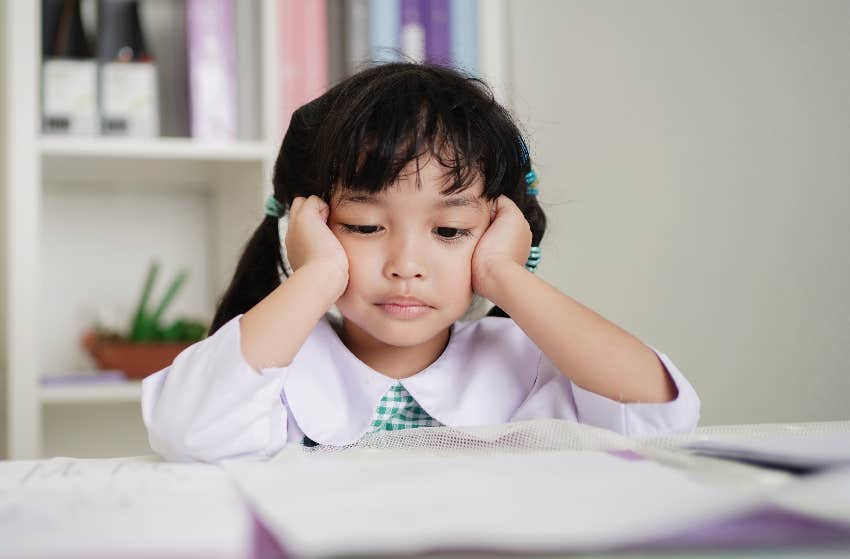4 Most Common Parenting Mistakes A Clinical Psychologist Uncovered After Coaching Parents
Plus, what you should be doing instead.
 Петрович Наталья's Images | Canva
Петрович Наталья's Images | Canva We can all admit that being a parent is not an easy job. And the reality is that you'll often find yourself messing up more than you'd care to admit.
However, you shouldn't feel too guilty about it. As parents, certain parenting mistakes are unavoidable and all too common.
Here are the 4 most common parenting mistakes a clinical psychologist uncovered after coaching countless parents:
"With years of experience coaching countless parents, I’ve observed that while each family is unique, certain parenting mistakes are common across many households. Identifying and addressing these mistakes can lead to significant improvements in a child’s behavior and the parent-child relationship," begins clinical psychologist Dr. Shefali Tsabary.
So, if you want to be the best parent you can be here are the common parenting mistakes parents make — and what you should be doing instead.
1. Protecting them from doing difficult things prevents kids from developing problem-solving skills.
I understand that you want to protect your kids from the horrors of the world. After all, it only seems to be getting more and more dangerous. But, knowing where to break is important if we want to raise healthy kids.
Dr. Shefali explains, "When parents shield their children from every difficulty, they hinder their ability to develop resilience and problem-solving skills. Instead, allow your children to experience and navigate challenges."
A Harvard study demonstrates why you should allow your children to mess up and make those silly mistakes. Allow them to get frustrated or upset when difficulties arise. And yes, be a comforting figure in their life — but don't hold their hand.
Remember, the goal here is to build resilience and resilience cannot be built without a little bit of difficulty along the way.
2. Inconsistent discipline sends mixed messages.
If you're going to discipline your children then both parties need to be on the same page. Because inconsistency allows for confusion and confusion can lead to bad boundaries.
Dr. Shefali explains, "Inconsistency in discipline confuses children and undermines their understanding of boundaries. Consistent rules and consequences provide a sense of security and clear expectations."
So, be sure to be on the same page as your partner. Sit down and discuss appropriate punishments for common mishaps. Because, when we set the expectations for our children they'll be much more likely to play by the book, as evidenced by a 2002 study.
 Asada Nami / Shutterstock
Asada Nami / Shutterstock
3. Not allowing kids to express their feelings prohibits opportunities for growth and learning.
As parents, you're bound to mess up from time to time. And when it comes to emotions this is especially the case.
Unintentionally, you might come across as cold or distant when your child expresses their emotions to you. But, don't beat yourself up over it.
As long as you're acknowledging your mistakes and correcting your behavior this isn't a huge deal. However, if you're consistently cold towards your child then this is definitely become a problem.
Dr. Shefali says, "Failing to empathize with your child’s feelings can make them feel misunderstood and undervalued. Show empathy by actively listening and validating their emotions."
Don't shut your child out and create a safe space where your child feels free to express their emotions — even the ugly ones.
 wavebreakmedia via Shutterstock
wavebreakmedia via Shutterstock
4. Not prioritizing your own self care sets an unhealthy example for kids.
Parents spend so much of their time perfecting themselves. And listen, I don't blame them. Most parents want to be the best versions of themselves they can be for their children.
Yet, problems arise when they forget to take care of their physical and mental needs first. And yes, self-care is extremely important and something more parents need to start prioritizing.
Dr. Shefali writes, "Parents who neglect their own needs often cannot provide the emotional support their children require. Prioritize your self-care to model healthy behavior and ensure you can be fully present."
Marielisa Reyes is a writer with a bachelor's degree in psychology who covers self-help, relationships, career, and family topics.

